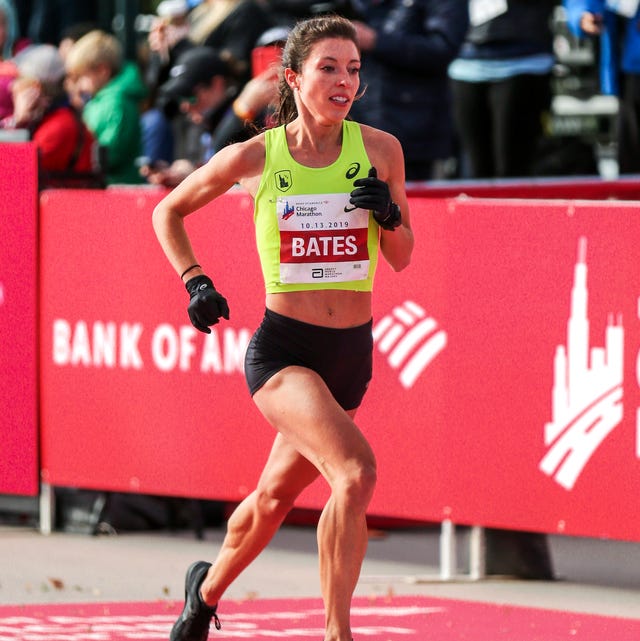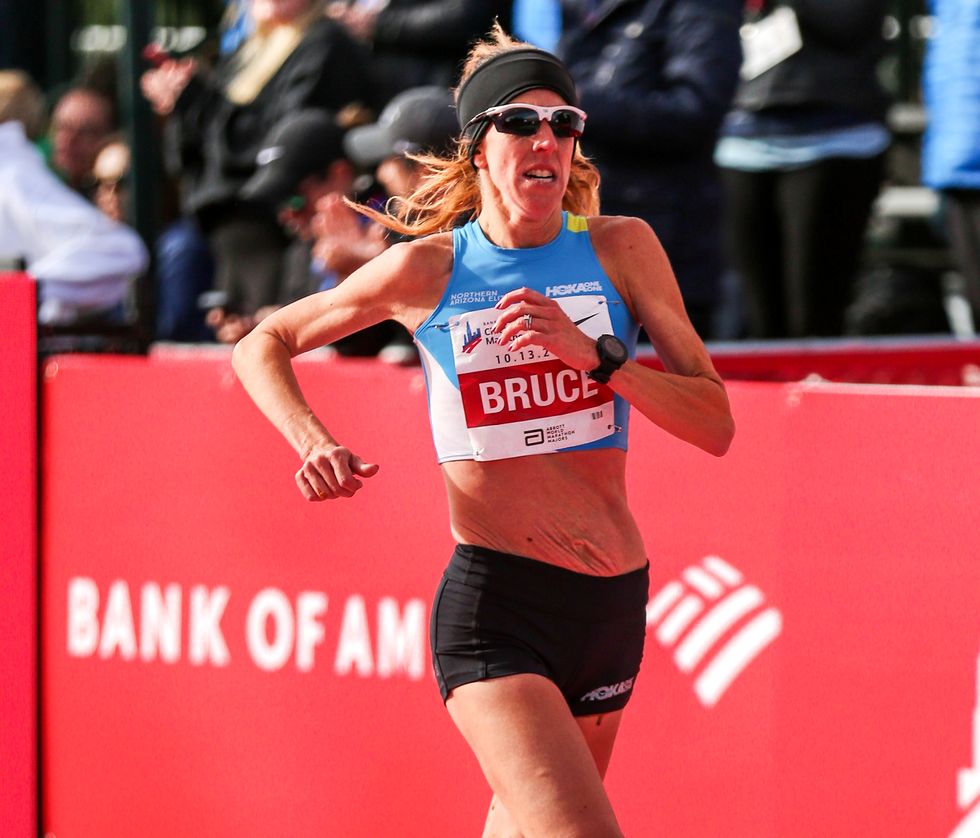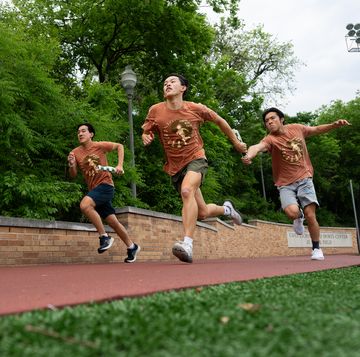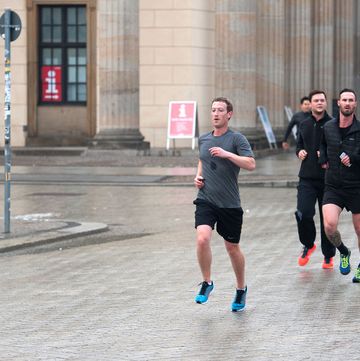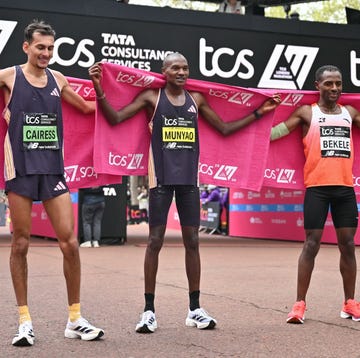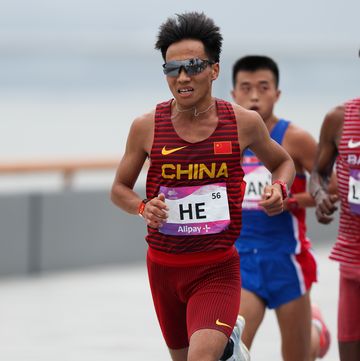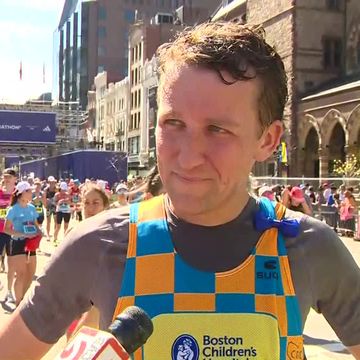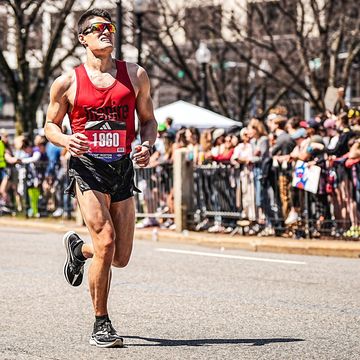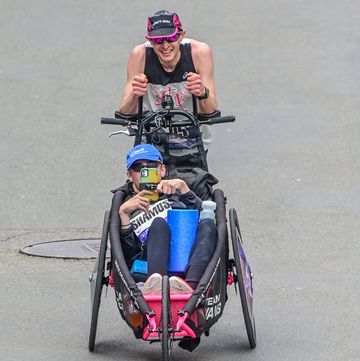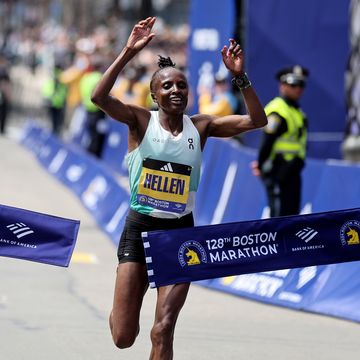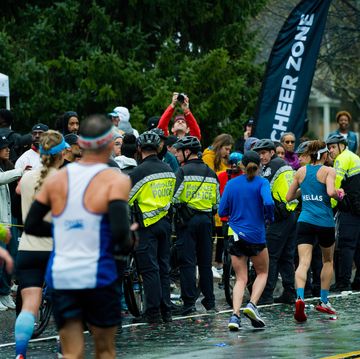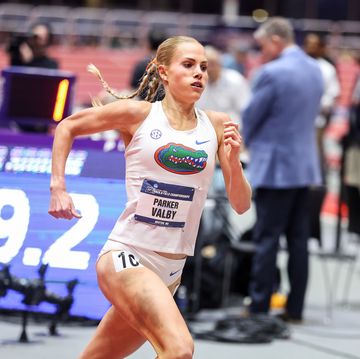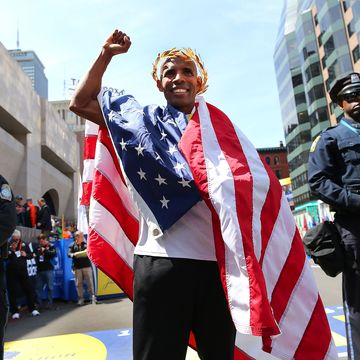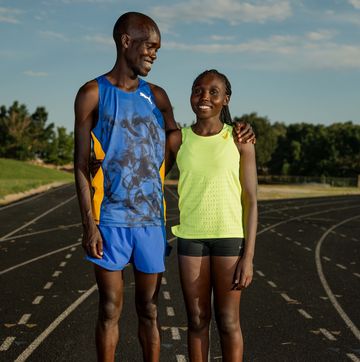Before the Chicago Marathon this week, Jordan Hasay was considered the prohibitive favorite among Americans. She ran 2:20:57 on this course two years ago and had mentioned chasing the American record today.
But by mile 2, she was off on the side of the road, grabbing at her hamstring, trying to stretch and continue. She couldn’t, and she dropped out soon after passing the 5K mat in 22:20.
Without Hasay, however, American women still managed to put five runners in the top 10, and four of those had sizeable PRs. Those results in Chicago make the picture for the Olympic Marathon Trials, to be held on February 29, 2020, even cloudier.
At the 2016 Trials, Amy Cragg won, Des Linden was second, and Shalane Flanagan was third. But Cragg withdrew from Chicago over the summer, Linden has not publicly committed to racing the trials, and Flanagan is recovering from knee surgery.
This time, the race to finish in the top three and make Team USA for Tokyo is wide open.
In only her second marathon, Emma Bates crossed the line in fourth in 2:25:27. She took nearly three minutes off her debut time, 2:28:19, which she ran in winning Cal International in December.
She saw Hasay at the side of the road. “It was really sad,” Bates said. “I would never wish an injury upon anyone. I want the [Olympic] team to be the best people.”
Bates tucked in behind a male pacemaker, Ben Bruce of Northern Arizona Elite, who was planning to run between 1:12:30 and 1:13:00 for the first half. (He ran 1:12:50.) He encouraged her to move ahead. She did, gradually catching up with men ahead of her and running behind them, letting them block the wind.
She credits her training group in Boise, Idaho, for keeping her motivated and training well.
“All of us have huge ambitions,” she said.
The same could be said for the American women who trailed her.
Stephanie Bruce, married to pacer Ben Bruce, lowered her PR from 2:29:20 to 2:27:47. She was sixth overall, second American. She was in the group he was leading through halfway, which she passed in 1:12:56, 6 seconds behind him.
She said she struggled the final 5K, and was disappointed not to have gone even faster. “I was looking for a bigger breakthrough,” she said. “But when you PR, it’s the best you’ve ever been in your life, so you’re not allowed to be upset.”
Bruce points out how deep the talent goes in American distance running right now. “It’s incredible. I love being part of that,” she said, and she thinks the Trials are wide open. “It’s going to be a very fierce race. You’re going to have to bring your A+ game to be on that team.”
Lindsay Flanagan, the third American (seventh overall), finished in 2:28:08, an improvement of 1:17 from her PR in Frankfurt last year.
“If anything, it’s just giving me confidence,” she said. “I ran well on the hilly course in Boston and then got a PR here, so let’s just keep this trending in the right direction heading into the Trials.”
[From training tips, to fueling strategies, to improving the mind-body connection, the Runner's World 2020 Calendar will help you run your best all year long.]
Laura Thweatt and Taylor Ward were ninth and 10th. For Thweatt, finishing a marathon was her main objective, as she hadn’t completed one since she ran 2:25:38 in London in 2017. She dropped out of Chicago last year around 10 miles, and she needed a qualifying time to even line up at the Trials.
“It was really important to me to re-familiarize myself with the distance and get reacquainted with the 26.2 grind that is the marathon,” she said. “I wanted something under my belt before the Trials to have that confidence. We went out conservative the first half just to make sure we didn’t have a big implosion. The goal was to negative split.”
Thweatt did that, running 1:15:00 and 1:14:06. It was far from her best, but the mental boost she needed.
Ward was two and a half minutes better than her best, in 2:30:14. And Sarah Sellers, forever famous for her second-place finish at Boston in the monsoon year of 2018, lowered her PR by nearly five minutes, finishing in 2:31:49 for 12th place.
Said Flanagan: “Across the board, American men and women just showed up today, which is really cool.”
Taylor Dutch contributed to this report.

Sarah Lorge Butler is a writer and editor living in Eugene, Oregon, and her stories about the sport, its trends, and fascinating individuals have appeared in Runner’s World since 2005. She is the author of two popular fitness books, Run Your Butt Off! and Walk Your Butt Off!
